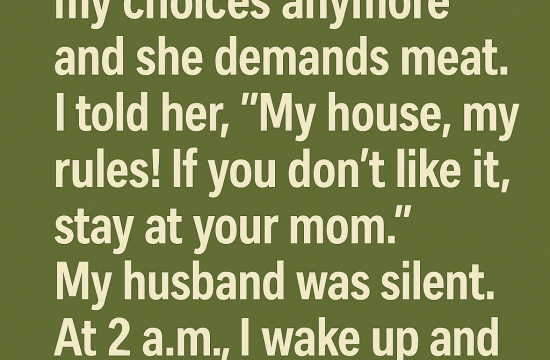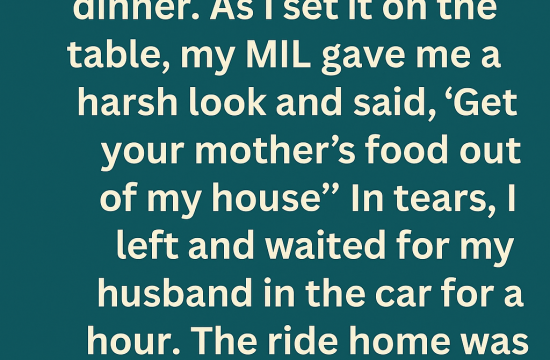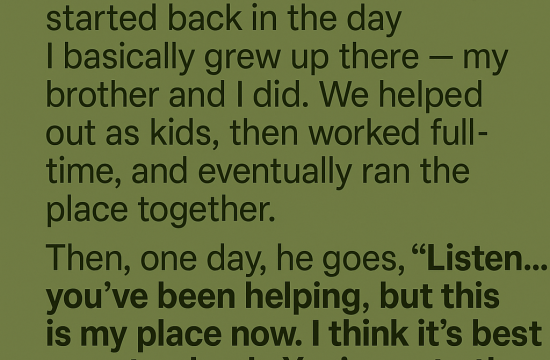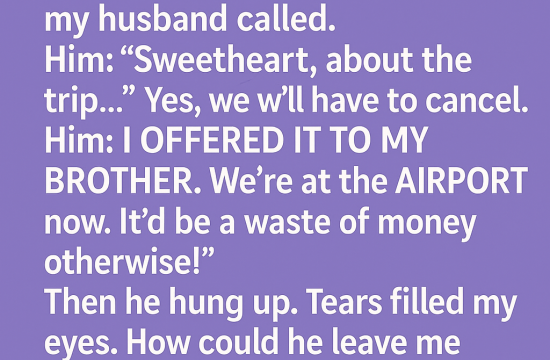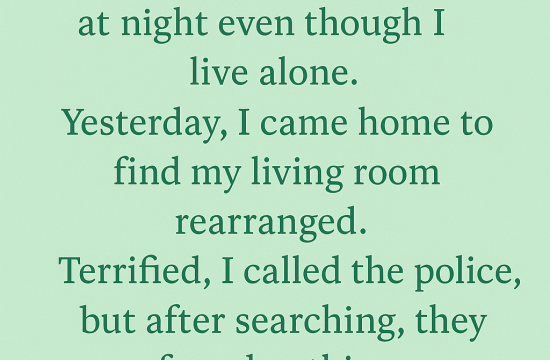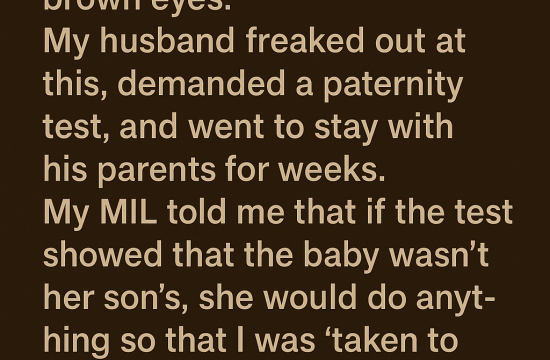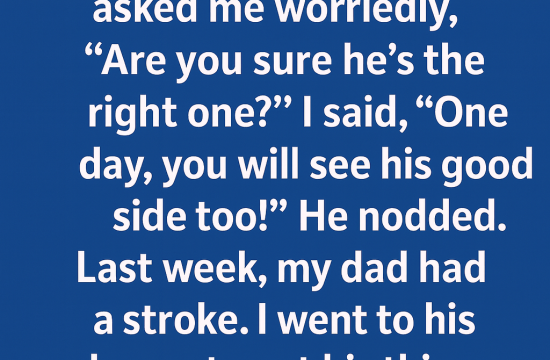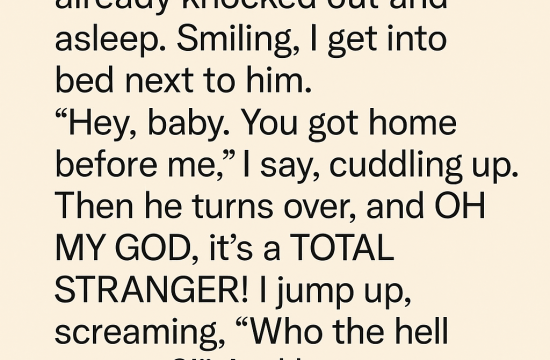I’m in my 60s now, divorced, with two grown-up kids.
I also have end-stage cancer. My daughter and I are estranged and haven’t spoken in 15 years.
I don’t blame her. I had an affair and broke our family.
Then, out of the blue, I got a call. It was my daughter, crying—pleading.
She said, “Dad… I know we haven’t talked. But… I need you. I really need you.”
At first, I thought maybe I was dreaming. Her voice was older, rougher, but still had that soft crack at the end of certain words—the same one she had as a teenager when she got emotional.
I didn’t say anything right away. I think she thought I’d hung up, because she panicked.
“Please, just listen. Don’t hang up.”
“I’m here,” I finally said.
She exhaled like she’d been holding her breath for years.
“It’s Elijah,” she said. “My son. He’s sick. We’re at the hospital. They… they don’t know what it is yet. But I didn’t know who else to call.”
I hadn’t even known I had a grandson.
Fifteen years of silence. No emails. No birthdays. Not a whisper. And now—this.
“What can I do?” I asked, my voice catching.
“I don’t know,” she said, crying. “I just… I need my dad. And he doesn’t have a grandpa. And I thought maybe… maybe it was time.”
I told her I’d be there within the hour.
I didn’t tell her about the cancer. Not then. I couldn’t. I didn’t want to burden her when she was already breaking. I figured if this was going to be the last chapter of my life, maybe I could write it differently than the rest.
When I walked into that hospital room and saw her, I almost didn’t recognize her. She had the same fierce look she used to get when she defended her little brother in school—but now it was hardened by fatigue. Real, bone-deep exhaustion.
She looked up and stiffened. Then she stood—and walked right into my arms.
We didn’t say much. We just held each other.
Elijah was asleep in the bed—pale, dark circles under his eyes, wires and monitors all around him. He looked about seven.
“He’s a fighter,” she whispered, brushing his hair back. “They’re running tests. Something with his immune system.”
I didn’t know what to say. So I sat beside him and said, “Tell me about him.”
And she did. For hours.
She told me about his love for drawing dinosaurs, his obsession with peanut butter toast, and how he once cried for three hours because he thought a worm he stepped on had a family waiting for it.
“He’s got your soft heart,” she said, almost smiling.
That night, I stayed at the hospital. I didn’t even ask. Just pulled up a chair and stayed.
The next few days were a blur—doctors, tests, silent waiting. But during those quiet moments, we talked. Really talked.
She asked why I did what I did back then. I didn’t give excuses.
I told her I was weak. That I got caught up in something that made me feel alive when I was afraid of getting old, invisible. That I never stopped loving her mom—even though I betrayed her. And that I never, ever stopped loving her.
She cried. But didn’t pull away. That was something.
One night, maybe a week in, she was asleep against the window sill. Elijah stirred and looked over at me, groggy.
“Are you Grandpa?” he asked.
I nodded, blinking back tears. “Yeah, buddy. I’m Grandpa.”
“Cool,” he said. “You look like a wizard.”
I laughed. “I get that a lot.”
He smiled before falling back asleep. That was the first time I saw him smile.
Over the next month, Elijah started improving. The doctors never figured out exactly what it was—some viral thing, they said—but his body had finally started to fight back.
And every day, I was there.
Mira—my daughter—started calling me “Dad” again. First in passing. Then like it was natural.
She brought me to her place. I met her husband, Reid—a quiet, steady man who looked at me with guarded curiosity.
“I’m grateful you came,” he said, after we shook hands.
“You’re not what I expected.”
“Neither am I,” I replied.
One evening, Mira and I sat on her back porch while Elijah drew chalk dragons on the patio.
“You never told me why you really came,” she said, eyes on the horizon.
I knew what she meant.
“I’m dying,” I said.
She turned to me. “What?”
“Stage four cancer. It’s spread everywhere. I didn’t want to tell you while you were dealing with Elijah. But I figured you deserved the truth.”
She didn’t cry. She just stared ahead.
“How long?”
“Months. Maybe a year, if I’m lucky.”
She nodded slowly. “I don’t know what to say.”
“You don’t have to.”
“But I want to,” she whispered. “I want to say I’m sorry I waited so long. That I missed you. That I hated you and needed you at the same time.”
We sat in silence, watching the sun dip behind the trees.
In the weeks that followed, something strange happened.
Elijah got better. Really better. He wanted to go fishing. Asked if I’d teach him chess. Then, one day, he asked if I could move in.
Mira smiled, then looked at me. “What do you think?”
So I moved in.
It was supposed to be temporary. But we all knew better.
We had breakfasts. Bedtime stories. Laughing fits and messy drawings.
It felt like a second chance.
One afternoon, I sat with Elijah while he drew dinosaurs in cowboy hats.
“Grandpa,” he said, still coloring, “do people come back after they go to heaven?”
“No, buddy,” I said gently. “They stay there.”
He nodded. “Then we better make this part really good.”
That hit me hard.
I started writing him letters. One for each birthday, every milestone. I didn’t tell anyone. Just hid them in a shoebox. I also recorded little videos—telling stories, offering advice, or just laughing at his jokes.
One day, Mira pulled me aside.
“I found the letters,” she said quietly. “I read one. I hope that’s okay.”
“It’s more than okay.”
She teared up. “I want you to know… I forgive you. I think I finally, truly do.”
And that was the twist I never saw coming.
Not the cancer. Not the reconciliation.
But the forgiveness.
The quiet, steady warmth of it.
Six months later, I’m still here. Not forever. But long enough.
Long enough to hear Elijah giggle in the morning. Long enough to see Mira hum in the kitchen.
Sometimes, life gives you just enough time to fix what matters most.
And when it does—you hold on. You show up. You stay.
Because second chances don’t come wrapped in bows. They come in broken phone calls, hospital rooms, and chalk dragons on the patio.
And they’re worth everything.
If you’re holding a grudge, make the call.
If someone’s reaching out with a humble heart—hear them out.
You never know what chapter you might be writing next.




